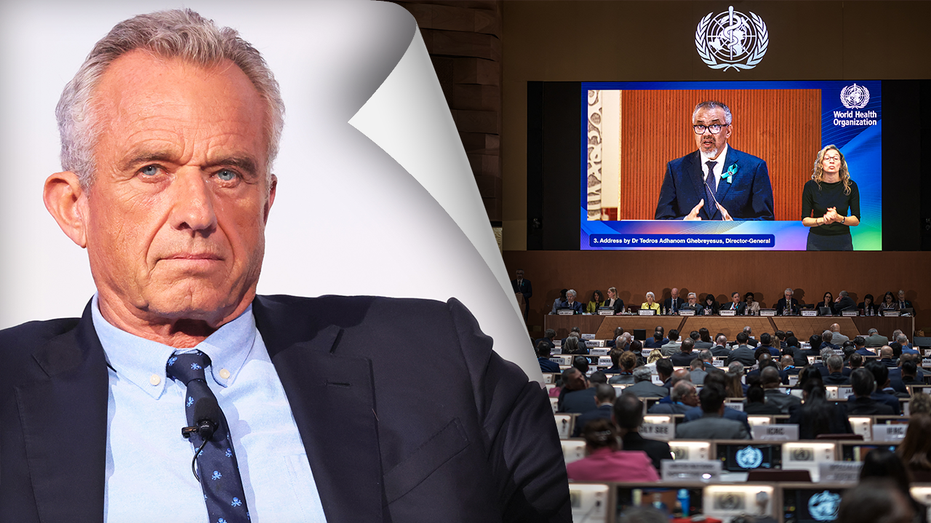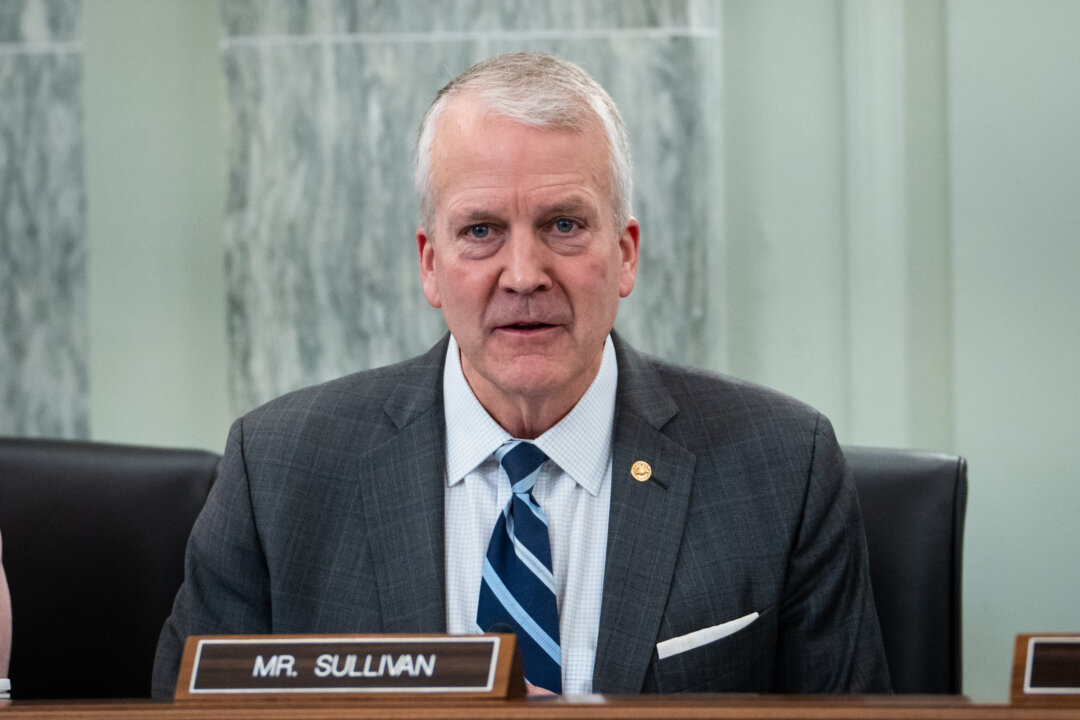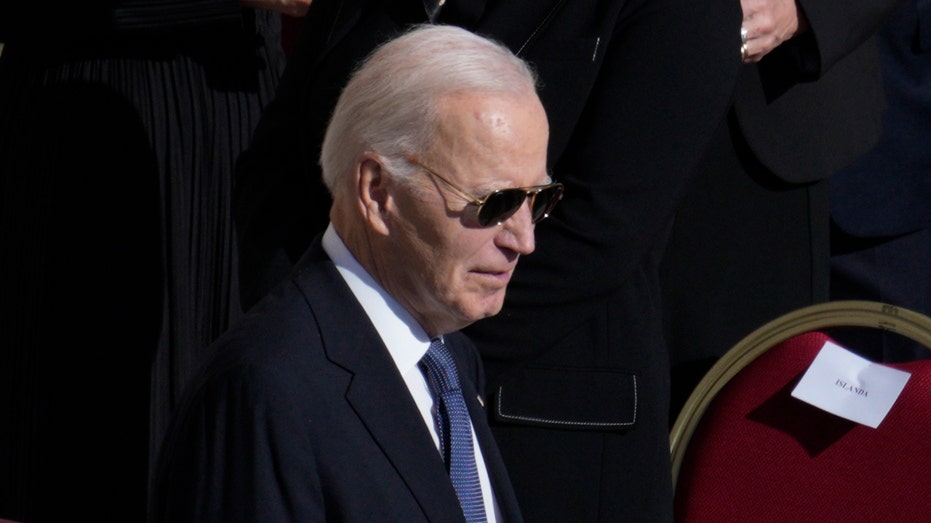Seth Moulton, the Democratic congressman from Massachusetts, knows a few things about generals. As a Marine officer in Iraq in the early years of the war, he served as one of three aides on Gen. David Petraeus’ elite counterinsurgency task force. Later, when he ran for Congress in 2014, he was endorsed by retired Army Gen. Stanley McChrystal. Moulton has also been an outspoken critic of the strategic failures by military leadership in Iraq and of military careerism more broadly, which has too often rewarded leaders who did not make hard decisions and were promoted anyway.
But he has nothing but scorn for what he says is the crude and overtly political way that Secretary of Defense Pete Hegseth has chosen to revamp the highest echelons of the military. Hegseth, also an Iraq veteran, recently announced he would slash 20 percent of 4-star officers and 10 percent of all other generals and admirals to “drive innovation and operational excellence unencumbered by unnecessary bureaucratic layers.”
In a conversation with POLITICO Magazine, Moulton, who serves on the House Armed Services Committee, explains why he agrees with Hegseth that the military is top-heavy — but why Hegseth’s purge appears completely political and ultimately undermines military readiness.
“That’s a recipe not just for a politicized military, but an authoritarian military,” Moulton said. “That’s the way militaries work in Russia and China and North Korea. And by the way, it’s a big part of why those militaries are not as strong and capable as our own.”
This conversation has been edited for length and clarity.
Secretary Hegseth has recently announced dramatic changes he wants to make across the military. One of them is substantial cuts in the number of generals at the four-star level and below.
From the public’s perspective, it’s often hard to understand the vast bureaucracy of the military, and whether these are good decisions or bad decisions. Hegseth has said he wants to streamline redundancy, but he has also said he wants to get rid of people who have been involved in “DEI crap.” So, what is really going on here?’
Well, the truth of the matter is that we don’t know because Hegseth has not honestly told us why he’s making these changes.
We have asked formally in letters, bipartisan letters from Congress, including one that I authored with Rep. Don Bacon, a former Air Force general, to ask him why he fired a bunch of generals early on. We asked his DoD officials in hearings. And of course, you and the press ask him, as well.
By not telling us why he’s doing this, it first of all violates a fundamental tenet of leadership that he should have learned in the National Guard, which is you explain your intent to your troops. But it also violates a basic expectation in a democracy, which is that we don’t just follow blind orders from government officials. We understand and debate the thinking behind what they’re doing.
One of the things Hegseth has said is “more generals does not equal more success.” And he’s cited, or people on his behalf, have cited the vast difference between the ratio of generals to rank and file soldiers in World War II compared to now. Does he have a point about the way the military is structured now? Has it become too bloated?
I actually agree with the idea that we might have too many generals. From 1965 to 2023, the number of general and flag officers increased 31 percent, which includes an especially high growth at the top end, 107 percent growth of four-star officers and 129 percent increase in three-star officers. And yet, during the same period, the size of the total force dropped by about 50 percent.
So, it’s not clear exactly what all of these high-level generals are doing. The Marine Corps, unsurprisingly, gets this right, and only has two four-stars in the entire corps, the commandant and the assistant commandant, whereas the Army has inflated rank almost as much as they inflate medals.
Spoken like a true Marine!
But it’s the truth.
The point is that you have to have a strategy for making these changes, because there also have been a lot of changes in the force structure over that time. The security environment we face is much more varied. No one was worried about Africa in 1965 the way we are today. We didn’t have two near-peer nuclear adversaries like we have in Russia and China, and no one knew what cyber meant. Or what unmanned vehicles would do to change warfare in Ukraine. So, we should be an evolving force. But just making random across-the-board cuts because 20 percent or 30 percent sound like nice round numbers is not reflective of a strategy.
So far it seems as though many of the highest-ranking officers he has targeted for removal — Chairman of the Joint Chiefs C.Q. Brown, Admiral Lisa Franchetti — have been Black or women. In other words, while he talks about streamlining redundancies, what he’s doing seems to be responsive to a much more political agenda. Is that a fair characterization?
Well, that’s how Pete Hegseth characterizes it in his book, which is essentially a manual for politicizing the military and indoctrinating the Pentagon with extremist conservative ideology.
Of the people they’ve fired so far, it includes three women, including the first chief of naval operations and the first commandant of the Coast Guard. And yet women make up less than 10 percent of general and flag officers. In the entire force, only 10 women have ever reached the rank of four-star general or admiral, and Trump has fired two of them. Look at C.Q. Brown, one of the most talented general officers of his generation. Unsolicited, I wrote a recommendation to President Biden, strongly encouraging him to be chosen as chairman of the Joint Chiefs because I was simply so impressed by his leadership and intellect. C.Q. Brown was very clearly fired by Donald Trump and Pete Hegseth because he is Black, and that’s outright racism.
I want to come back to the politicization that you just mentioned a moment ago, but before that, I want to talk also about what the removal of Black generals and female Admirals does to military readiness.
It sends a message to the troops that merit doesn’t matter, that there’s no accountability for important decisions and that anybody can be fired for simply disagreeing politically with the commander-in-chief.
That’s a recipe not just for a politicized military, but an authoritarian military. That’s the way militaries work in Russia and China and North Korea. And by the way, it’s a big part of why those militaries are not as strong and capable as our own. Because we value criticism and new ideas. We thrive off the diversity of talent in our country. And we ask the troops to take responsibility for their actions and the actions of those in their command. Pete Hegseth represents the opposite of all of that. It is the antithesis of leadership by example.
You mentioned criticism that’s inherent in our military and not in our some of our adversaries. But let’s talk about accountability for a second. Much has been written about the lack of accountability in the military over the past generation, including two major wars in Iraq and Afghanistan.
There was that famous quote: “A private who loses a rifle faces greater consequences than a general who loses a war.” Do we need to do more in terms of culling our leadership for their failures?
I think we should. And that would mean firing people based on merit. Not for quotas or racist ideals.
If you’re a member of the public and you’re looking at this, how will you know that the decisions to remove or demote this general or that admiral are made for justifiable reasons or because they’re part of a larger political agenda?
All he needs to do is simply answer the question: Why were they fired? And he has refused to honestly answer that question to date.
Is there a way to compel that response?
Every other secretary of Defense in history, as far as I know, has answered questions from Congress. And Hegseth has refused to even respond to our inquiries, which not only undermines his credibility. But it also undermines his leadership for everyone else, because every general or officer today is wondering if he or she will be next. They have no idea why some of their colleagues were fired. I’ve spoken to fired generals who have no idea why they were fired. This is no way to lead the Department of Defense.
You’ve seen his memos on the commands that he wants to consolidate. The Army’s Futures Command and its Training and Doctrine Command he wants to combine into one. There’s a four-star general at the top of each. One of them, I assume, will go. From the lay perspective, is that a good decision? Is that the right call to solve some of what you described, as the problem of too many generals?
Or again, is it because — and I’m going to be very blunt here — is this being done because there’s a Black general at the top of one organization and a white general at the top of the other?
Well, let’s take a wild guess as to whether Hegseth will fire the Black guy or the white guy. What do you think? I could make a case for combining these two commands. If Hegseth is so smart, let’s hear that case. And if it’s a reasonable case, then people will agree with it. But my guess is he just fires the Black guy.
The president is seeking a big increase in military spending. If you had a magic wand to wave over the military budget, where would you be focusing resources?
I would invest many times more in space. The administration is cutting the space budget.
I would reinforce our cyber capabilities. The administration just fired the head of cyber command.
I would invest more in the innovative private sector, including satellite imagery and intelligence. And we’ve seen no similar initiative under Hegseth.
So, it’s not necessarily that big is bad. Big can be great. But it has to be the right priorities. And I don’t know anyone in the Pentagon who has enough faith in Pete Hegseth’s leadership to make the right investments for our troops. He spends his day defending himself, not defending our country.
I want to return to that politicization theme we discussed earlier. What are the risks of a politicized military from the perspective of service members and also from the perspective of the public? What happens when either or both of those groups perceive that the decisions at the top of the hierarchy are being made for ideological reasons, agenda-driven reasons?
Just imagine if we had a partisan, politicized military like Trump and Hegseth want. As a platoon commander in Iraq, if I give an order to my platoon and half the platoon says: “Nope, we’re not going to do that because we don’t agree with Bush’s war,” that doesn’t work. It doesn’t work in a successful military. And it sure as hell doesn’t work in a democracy.
Are you worried about Trump’s deployment of troops to the border?
I worry that the military could be used in lawless, illegal, partisan political ways because Trump has told us he wants to.
Do you see evidence that that’s happening now? Where are you most worried it might happen?
The next time there’s a protest that Trump doesn’t like and he asks the secretary of Defense to order the troops to shoot the protesters, I expect Hegseth would comply. Whereas, at least in his first term, Trump’s secretary of Defense said no to that very request.
.png)












 English (US)
English (US)